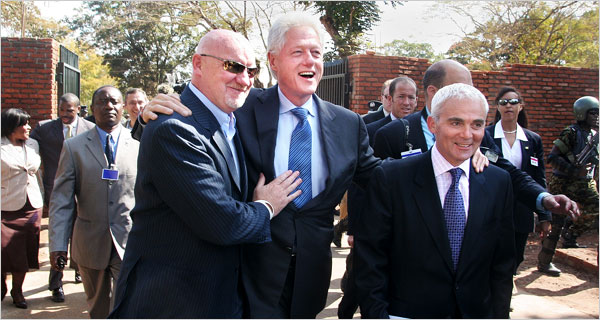“In Washington, there’s no happier situation for a politician than to be doing absolutely nothing and getting great press for it. But let’s be clear about one thing: keeping their powder dry profits the superdelegates, but comes at the expense of their party. It shouldn’t take Solomon to see that.” The Atlantic‘s Josh Green argues that the superdelegates should get cracking on their decision, if they’re serious about a long race hurting the Dems.
And, in related news, Sen. Clinton picks up her first two superdelegates in a month: DNC rep DNC rep. Pat Maroney of WV and, more notably, Rep. John Murtha of PA. Murtha, a.k.a. “the Pork King,” has not only been an enemy to ethics reform, but has a litany of shady scandals to his name, from Abscam to PAID. (Not for nothing did CREW name him one of the 20 most corrupt representatives in Congress.) And, of course, Murtha led the House in earmarks last year, clocking in at $162 million (thanks to his gig as the Appropriations Defense Subcommittee Chairman.) So, given that he’s part of the problem and not part of the solution, I’m not at all surprised he’s chosen to endorse the candidate who’s rife in lobbyist money and who won’t release her own earmarks. That’s one super you can have, Sen. Clinton.

